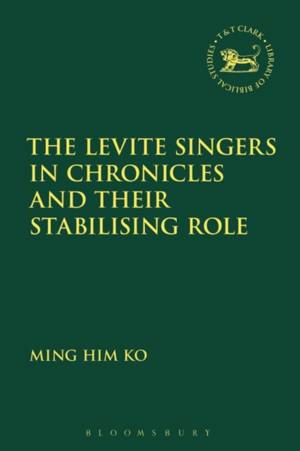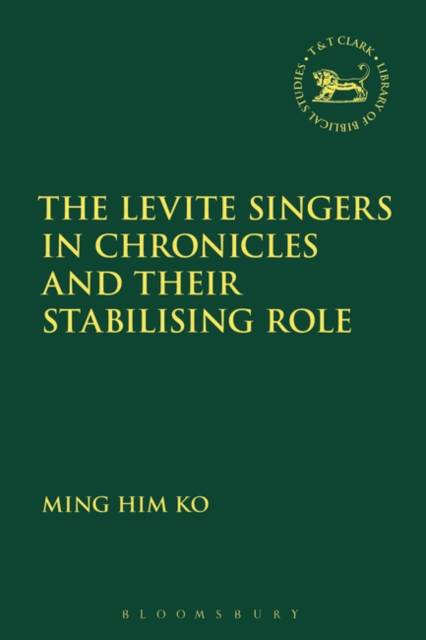
Bedankt voor het vertrouwen het afgelopen jaar! Om jou te bedanken bieden we GRATIS verzending (in België) aan op alles gedurende de hele maand januari.
- Afhalen na 1 uur in een winkel met voorraad
- In januari gratis thuislevering in België
- Ruim aanbod met 7 miljoen producten
Bedankt voor het vertrouwen het afgelopen jaar! Om jou te bedanken bieden we GRATIS verzending (in België) aan op alles gedurende de hele maand januari.
- Afhalen na 1 uur in een winkel met voorraad
- In januari gratis thuislevering in België
- Ruim aanbod met 7 miljoen producten
Zoeken
The Levite Singers in Chronicles and Their Stabilising Role
Ming Him Ko
€ 296,95
+ 593 punten
Uitvoering
Omschrijving
This study focuses on the Chronicler's special interest in Levite singers. It takes into consideration the socio-ideological milieu of the Jerusalem temple community in the Persian period and the Mesopotamian elite professional norms and practices that nourished the singers and their music. It also explores the conception of the earthly temple as representative of its heavenly counterpart, and looks at the way in which this shaped the Chronicler's theological frame of reference.
The work is divided into two parts. Part I examines the Mesopotamian scribal-musical background, to which Ko attributes the rise of music in Chronicles. Part II considers the Chronicler's ideological perspective, the language of the temple and the educational, scribal, and liturgical services of Levite singers. By focusing on the characterisation of the Levite singers in the light of their Mesopotamian counterparts, Ko shows how they sought to foster cosmic stability according to the terms of the Davidic covenant.
The work is divided into two parts. Part I examines the Mesopotamian scribal-musical background, to which Ko attributes the rise of music in Chronicles. Part II considers the Chronicler's ideological perspective, the language of the temple and the educational, scribal, and liturgical services of Levite singers. By focusing on the characterisation of the Levite singers in the light of their Mesopotamian counterparts, Ko shows how they sought to foster cosmic stability according to the terms of the Davidic covenant.
Specificaties
Betrokkenen
- Auteur(s):
- Uitgeverij:
Inhoud
- Aantal bladzijden:
- 344
- Taal:
- Engels
- Reeks:
- Reeksnummer:
- nr. 657
Eigenschappen
- Productcode (EAN):
- 9780567677020
- Verschijningsdatum:
- 10/08/2017
- Uitvoering:
- Hardcover
- Formaat:
- Genaaid
- Afmetingen:
- 157 mm x 236 mm
- Gewicht:
- 612 g

Alleen bij Standaard Boekhandel
+ 593 punten op je klantenkaart van Standaard Boekhandel
Beoordelingen
We publiceren alleen reviews die voldoen aan de voorwaarden voor reviews. Bekijk onze voorwaarden voor reviews.









